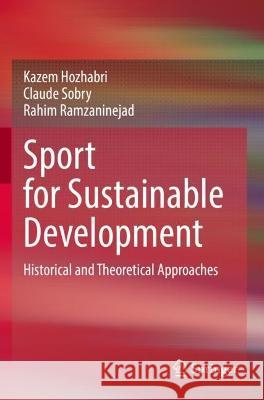Sport for Sustainable Development » książka
topmenu
Sport for Sustainable Development
ISBN-13: 9783031064913 / Angielski / Miękka / 2023
Sport for Sustainable Development
ISBN-13: 9783031064913 / Angielski / Miękka / 2023
cena 402,53
(netto: 383,36 VAT: 5%)
Najniższa cena z 30 dni: 385,52
(netto: 383,36 VAT: 5%)
Najniższa cena z 30 dni: 385,52
Termin realizacji zamówienia:
ok. 16-18 dni roboczych.
ok. 16-18 dni roboczych.
Darmowa dostawa!
This book looks at the potential of sport to contribute to wide-ranging development outcomes, which have been recognized across international policy declarations, most significantly in the 2030 UN Agenda for Sustainable Development. It provides a theoretical approach to sport and development. It begins by addressing the basic concepts of sport development and sustainability and then discusses the potential contribution of sport to five prioritized SDGs (SDGs 3, 4, 5, 8 and 16) and the environment as one of the sustainable development pillars that may contribute to SDGs 6, 7, 11, 12, 13, 14 and 15. This academic resource provides a macro view to students and researchers of sports sciences to know more about the fundamental concepts of sustainable development goals, and to enhance their knowledge about sport as a conduit that can help achieve wider development outcomes rather than being an end in itself. This book is of interest to students and researchers of sports studies, from sociology to management, and researchers and policy makers interested in sport and sustainable development.











